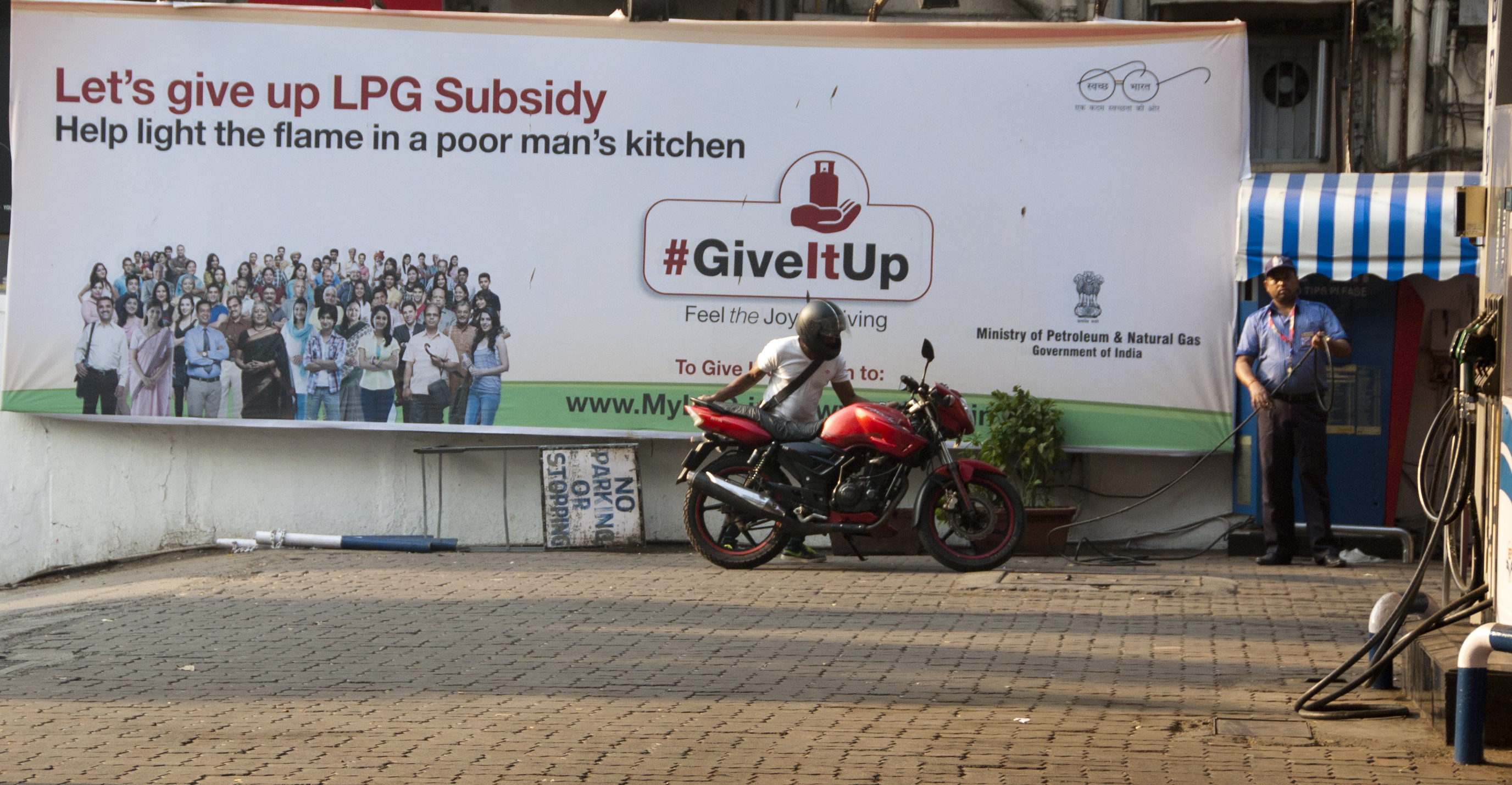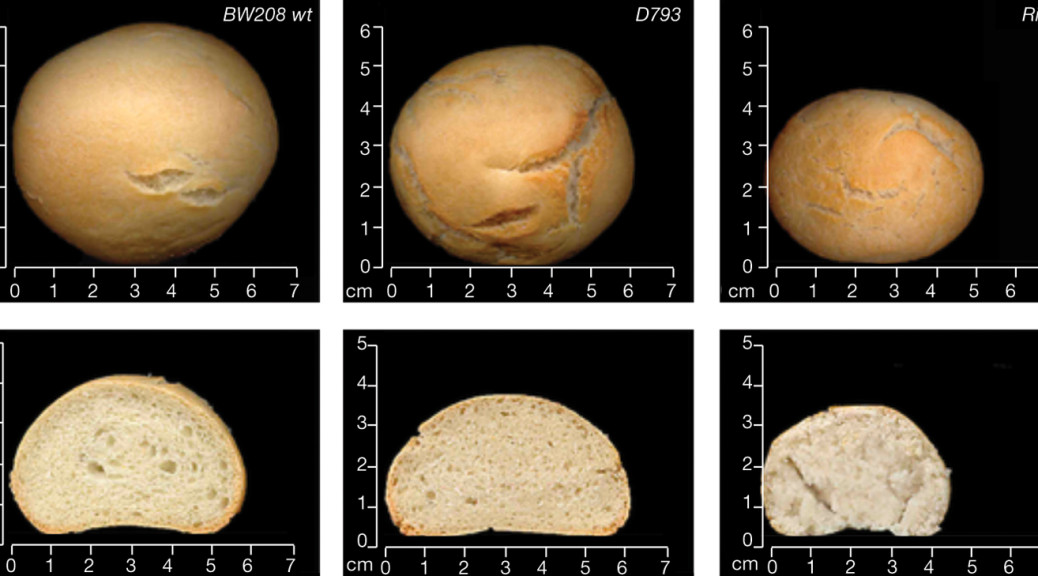The hum of Gurumoorthy Sethuraman’s 10-horsepower (7.46 kW) irrigation pumps joins the murmur of nearby rivers in Arayapuram, India. Sethuraman, an experienced and successful farmer, plants alternating crops of rice and pulses each year in the southeast Indian state of Tamil Nadu. This bounty has enabled his family to send several of his grandchildren to study abroad in the United States and United Kingdom. Yet, by law, he and other commercial agriculture enterprise owners are not required to pay the utility that powers the 60 or so wells that irrigate his 15 hectares of land.
Continue reading India’s energy subsidy slowdown
All posts by LL
Will Europe toast GM wheat for gluten sufferers?
Soon, individuals with celiac disease in southern Spain will begin receiving regular allotments of bread. Rather than misguided charity, this will be a clinical trial of a new type of dough made from genetically modified (GM) wheat. The wheat has been altered to be low in gliadins—the portion of gluten proteins that are toxic to people with celiac disease. If successful, the trial could bolster growing research efforts to engineer wheat to be compatible with the immune systems of the ~1% of the global population with celiac disease and the much larger number of people with gluten allergies.
Low-gluten wheat could also open a new front in the battle for GM food acceptability in Europe. If Europeans are ever going to accept a GM food, celiac-safe wheat may be a good candidate. European consumers accounted for over  1.1 ($1.21) billion of nearly
1.1 ($1.21) billion of nearly  1.9 billion worldwide gluten-free food market, according to market research firm Euromonitor International. Global gluten-free bakery sales are expected to grow at >7% annually, the firm predicts. But because this and other efforts to modify wheat involve inserting genetic elements to silence genes, they are subject to a European regulatory process closely tied to anti-GM politics. And even if such legal barriers to marketing are overcome, marketing such a wheat would require not just farmers, but millers, bakers and consumers to be persuaded that it is worthwhile. Continue reading Will Europe toast GM wheat for gluten sufferers?
1.9 billion worldwide gluten-free food market, according to market research firm Euromonitor International. Global gluten-free bakery sales are expected to grow at >7% annually, the firm predicts. But because this and other efforts to modify wheat involve inserting genetic elements to silence genes, they are subject to a European regulatory process closely tied to anti-GM politics. And even if such legal barriers to marketing are overcome, marketing such a wheat would require not just farmers, but millers, bakers and consumers to be persuaded that it is worthwhile. Continue reading Will Europe toast GM wheat for gluten sufferers?
Unlocked: How to Push Past a Career Barrier
Brendan Borrell was feeling low about his career. He had been freelancing for several years and no longer worried about paying the rent. But he wanted more adventure in his work. He wanted to tag along with environmental scientists and advocates at their labs and in the field, tracing the ups and downs of their work. He wanted to apply for ambitious fellowships that would support far-flung reporting. But the deadlines slipped by. He was letting routine assignments crowd out the sort of big stories that had years earlier prompted him to trade field biology for journalism. He was always collecting “string” for future stories. But “it’s easy to collect and collect and collect and never have a chance to step back,” he says.
As the next big fellowship deadline loomed, Borrell drove to a rented cabin in Vermont, toting his mountain bike, laptop, and a few of his leading story ideas. He stayed for a month, telling himself, “I’m gonna write this proposal this year no matter what.” For that month, he went mostly offline. The change in scenery and schedule helped him review old ideas and synthesize them in new ways. Either the mountain biking or the deep thinking paid off: his proposal won him an Alicia Patterson Fellowship and a reporting trip to Uganda.
Continue reading Unlocked: How to Push Past a Career Barrier
¿Celebrará Europa la llegada del trigo transgénico para quienes no toleran el gluten?
Pronto, los celíacos en el sur de España comenzarán a recibir cuotas regulares de pan. Lejos de ser una caridad desacertada, se trata de un ensayo clínico de un nuevo tipo de masa hecha de trigo genéticamente modificado (GM). El trigo ha sido alterado para ser bajo en gliadinas –la porción de las proteínas del gluten que son tóxicas para las personas con enfermedad celíaca–. Si tiene éxito, el ensayo reforzará los crecientes esfuerzos de investigación para crear trigo que sea compatible con el sistema inmune del ~1% de la población mundial que padece la enfermedad celíaca y una cantidad mucho mayor de personas con alergia al gluten.
El trigo bajo en gluten también podría abrir un nuevo frente en la batalla por la aceptación de alimentos GM en Europa. Si los europeos van a llegar a aceptar alguna vez un alimento GM, el trigo apto para celíacos sería un buen candidato. Los consumidores europeos representaron más de €1,1 mil millones ($1,21) de los casi €1,9 mil millones que suma el mercado mundial de alimentos sin gluten, de acuerdo con la firma de investigación de mercado Euromonitor International. Según las predicciones de esta organización, se espera que las ventas mundiales de panificados sin gluten crezcan más de 7% por año. Pero debido a que este y otros esfuerzos para modificar el trigo implican insertar elementos genéticos para silenciar genes, están sujetos a un proceso de regulación europeo estrechamente ligado a la política anti-GM. E incluso si se superan estas barreras legales para la venta, la comercialización de un trigo de este tipo requeriría no solo convencer a los agricultores de que vale la pena, si no también a los molineros, los panaderos y los consumidores. Continue reading ¿Celebrará Europa la llegada del trigo transgénico para quienes no toleran el gluten?

